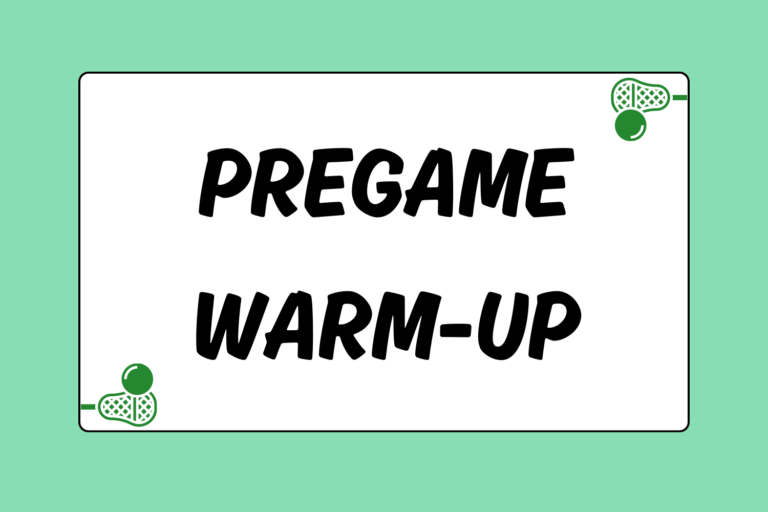With the professional ranks being so thin, playing college lacrosse is essentially the ultimate achievement for a standout high school laxer. All the best players dream of suiting up at Homewood Field for Hopkins, or ballin’ in the Carrier Dome for Syracuse. Obviously, getting looks from these schools takes a certain level of natural athleticism, but there are other ways to get noticed by the top coaches and schools. While most schools do not offer full athletic scholarships for lacrosse, some do, and others are happy to give partial scholarships for a standout student-athlete. Be proactive in getting your name out there to coaches and keep your nose to the grindstone in the classroom, and the attention of top coaches and programs will find you.
Navigating the NCAA
The various NCAA protocols can be very difficult for a high school student to decipher. If you’re serious about wanting to play NCAA ball, visit with your school’s academic counselor during your freshman year. Since the NCAA requires students to take certain core-courses and be on track to graduate in four years, it’s very important to meet all their requirements. Have your school’s academic counselor help you schedule the appropriate classes to be sure you are complying with the NCAA’s guidelines.
The next step is to register with the NCAA Eligibility Center (formerly known as the NCAA Clearinghouse). The Eligibility Center checks to ensure a player’s amateur status and college eligibility prior to playing for an NCAA team. You must register with them before the end of your junior year of high school. If you’re planning on playing Division III, you don’t need to register with the Eligibility Center.
The NCAA has very strict guidelines for potential student-athletes, so meet with your academic counselor early in your high school career and be sure you are taking all the correct steps towards being eligible to play college ball.
What Coaches Want
Seeing your name atop the list of goal scorers is sure to raise some eyebrows of college coaches. The most important things they look for, however, are academic achievers, great athletes, and well-rounded players. Don’t just focus your attention on personal improvement towards being a top scorer. The classroom matters, too.
Showing your ability to handle a tough academic load while playing a sport demonstrates to coaches that you are capable of doing the same thing at the college level. A big part of college is learning to balance and manage your time properly, and college coaches want to feel confident that you are able to do that before they throw a bunch of scholarship money your way. No coach wants to take a player who may not be around a year later because he couldn’t handle the academic rigors of college, and had to drop out or transfer.
Coaches also want multi-dimensional players. Work on all areas of your game over the course of your high school career so that you are as complete a player as possible by the time your senior year has come to an end.
• Attackmen should strive to be more than a goal scorer or feeder. Work on finishing on the crease from all angles, and make sure that you have a couple of reliable dodges. Make sure to give maximum effort on hustle plays like shot backups and ground balls. Learn the intricacies of off-ball offensive plays, like setting proper picks and cutting into space around the goal.
• For midfielders, do your best to become an above-average defender to avoid being a liability on the defensive half. Don’t be content being the player that comes out for the LSM when his team is going on defense.
• Defensemen have to be more than just takeaway artists or hard hitters. They must be able to handle the ball confidently, and initiate transition when they pick up a loose ball in the defensive half of the field. Defensemen don’t have to be shooters, per se, but they should know where and how to move the ball in a fast break or uneven situation going up the field towards the opponent’s cage.
• As for the goalies, they also should be a factor in the clearing game. The ability to handle the ball with confidence and direct the entire clearing unit as the ball moves up the field is crucial. In the college game, teams aren’t always able to rely on a super-athletic midfielder to run 70 yards with the ball through intensely riding attack and midfield units.
Getting Noticed by Coaches
Don’t make the mistake of assuming that the best coaches will find you. Be proactive and get your name out there – force coaches to remember your name. There are a few different avenues to achieving this goal. Summer recruiting camps, recruiting letters and highlight videos are all effective ways to gain exposure.
Many schools run their own on-campus summer recruiting camps that act as a way for coaches to discover prospective players. If you’re serious about getting recruited, you should look to attend one of these camps after your sophomore year in high school. Use your time on campus to meet some players already on the college team, and to talk to them about life as a student-athlete at that school. Also, don’t be shy about introducing yourself to the coaches, in order to get a feel for the personalities of the coaching staff. A big part of your decision on what school to attend will have to do with the coaching staff there.
Every school’s coaching staff keeps a database of potential recruits, and sometimes talented players slip through the cracks without ever finding their way into those lists. Take some initiative by sending an email to any and all coaches of schools you might be interested in attending. Tell them who you are, what school you currently attend, your style of play, accomplishments, and where they may be able to watch you play. Tell the coach that you are interested in competing at the NCAA level for their program, and ask them to send you any available information about the school.
Is your mom or dad at your games with the camcorder filming all the action? If so, you can use that footage for more than just nostalgia a few years down the road. Find someone who knows what they’re doing with a computer video editing program, and put together a highlight tape of yourself to send out to colleges. About five minutes of highlight clips, to go along with a half or quarter of uninterrupted game footage is what coaches are looking for. Don’t just include the goals or big hits, either. Show coaches that you’re a multi-dimensional player. If you play another sport (especially football, basketball, hockey, or soccer), feel free to include a couple clips of yourself playing that sport as well. Coaches love athletes that play more than just lax.
Fun Fact:
Lacrosse coaches love football players. The footwork and physicality make for a seamless transition into high level college lacrosse. Virginia’s Dom Starsia recruits a ton of football players, and asks players to send him their football highlight tapes when he is recruiting them, just to get a better idea of their athleticism and physicality. A number of UVA’s top players were standout footballers in high school, many of whom were recruited to play D1 football at traditional powerhouses.
Picking the Right School
The time has come to choose the school where you’re going to spend the next four years of your life. Understand that you may not play lacrosse for all four of those years, and think about that when making your final decision. Accordingly, the chances of early playing time may be a factor in choosing your new digs.
Here are a few things to consider when choosing a college lacrosse program:
• Proximity to home
• Academic reputation
• Lacrosse tradition
• Chances for playing time
It’s a Wrap!
Now that you’ve made your decision, move forward with confidence that you’ve chosen the right place to get your higher education. The NCAA recruiting map can be a tough one to navigate, so make sure you’ve done everything in your power to get all information available to you, and not make an impulsive school choice for the wrong reasons. Get ready to have the time of your life and grow into a big time player!





